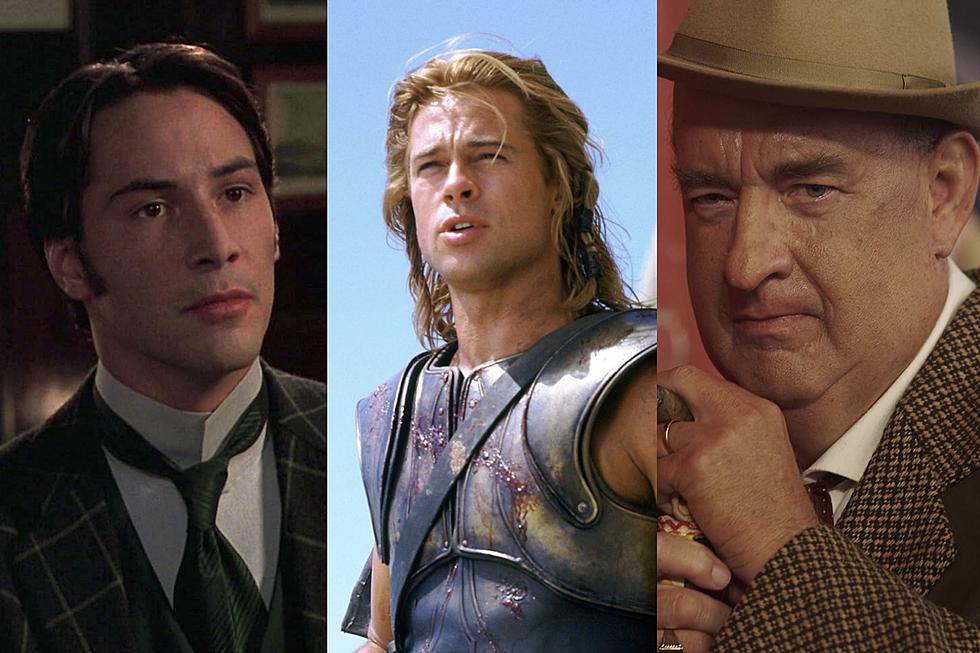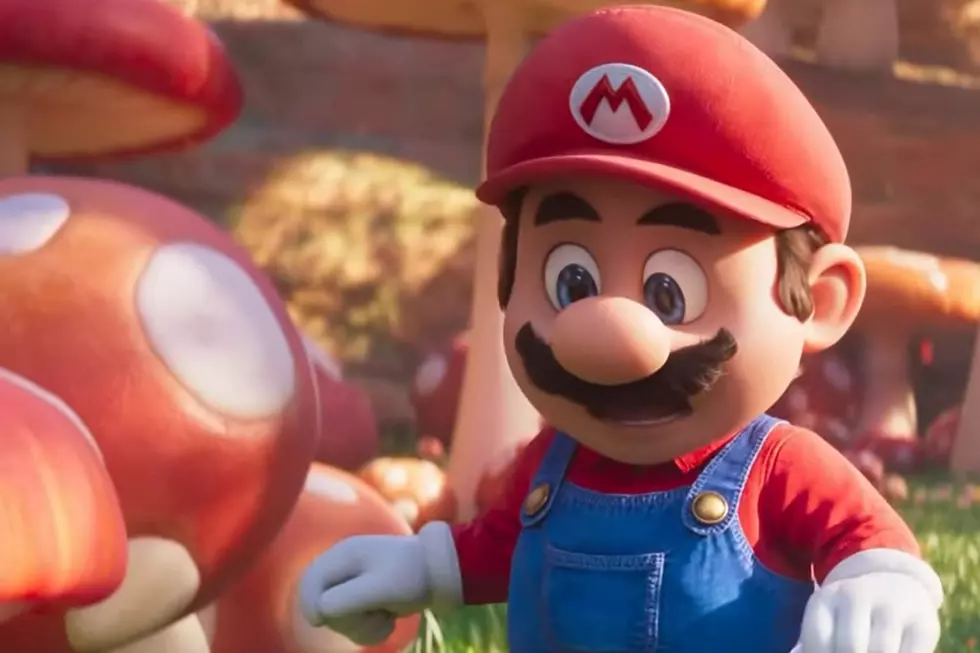
‘I Love You, Daddy’ Is the Movie of 2017, Even If No One Ever Sees It
Here’s how the Toronto International Film Festival described Louis C.K.’s I Love You, Daddy on their website when the film premiered there back in September: “Shot on 35mm in black and white, Louis C.K.’s I Love You, Daddy was filmed entirely in secret.”
Clearly, Louis C.K. is good at keeping secrets. It took at least 15 years for the whispered rumors about his sexual misconduct to be fully exposed by five victims of his alleged acts in an article in The New York Times. The Times report was a long time coming, but the reaction to it was swift: Barely 24 hours after the article about C.K. allegedly masturbating in front of numerous women was published (and shortly after the comedian gave his own statement admitting the stories were “true”), the November 17 release of I Love You, Daddy was canceled by its distributor, The Orchard.
The same day The Orchard shelved I Love You, Daddy, many film critics received screener copies of the movie that were intended for awards consideration. They reveal that even if it won’t actually be released in 2017, I Love You, Daddy is still the film of the year. Not the best film of the year, mind you. It is most definitely not that. But if you had to pick one movie to represent the turd burger that is 2017, you’d be hard pressed to find a better summation of the toxic dude behavior that finally brought down its author and many other abusers at the upper echelons of entertainment, politics, and business.
The film, which drew both positive reviews and a fair number of raised eyebrows at TIFF, is practically a catalog of the sexual abuses that have dominated the news for the last six weeks. A powerful man in the television industry uses his position and the possibility of a job to sleep with a woman. An older man is accused of sleeping with a much younger woman — and others rush to his defense, claiming that the rumors are unproven, and even if they were there’s nothing necessarily wrong with what he did. In one sequence, a man explains to a woman what “real” feminism is. And, yes, someone mimes masturbation in front of a woman in the workplace. (Technically that someone mimes masturbation in front of a woman in the workplace twice.) If Louis C.K. had deliberately tried to turn the stories about Harvey Weinstein, Kevin Spacey, Roy Price, and many others into a single film, he couldn’t have done a better job.
Obviously, that’s not what Louis C.K. intended. He made I Love You, Daddy as a lifelong Woody Allen fan trying to come to terms with the sexual misconduct allegations against him. C.K.’s Glen is a successful television producer who idolizes an Allen stand-in named Leslie Goodwin (John Malkovich), a famous film director who is tailed by accusations of pedophilia. Glen’s quick to dismiss those rumors until they hit close to home, when his 17-year-old daughter China (Chloe Grace Moretz) meets Leslie and contemplates a relationship with him.
Even if the artists in I Love You, Daddy aren’t pedophiles or harassers, they’re all deeply flawed “perverts,” as one character puts it. So the whole film is, on some level, about whether a viewer can (or, more importantly, should) separate the artist from their art. But there doesn’t appear to be much separation between artist and art in I Love You, Daddy; C.K.’s character, a television writer and producer and single father, closely resembles the man playing him, and the subplots surrounding the Woody Allen-inspired storyline are rife with allusions to C.K.’s alleged misdeeds.
The first joke about masturbation arrives barely five minutes into the film; when Charlie Day’s Ralph shows up and repeatedly pretends to masturbate in front of others, including a TV producer played by Edie Falco. (She barely acknowledges him, as if this is something she has seen many times before.) In one scene, Ralph faux masturbates while Glen speaks on the phone with an actress played by Rose Byrne, a disturbing echo of an allegation against C.K. in the Times’ exposé, in which a comedian claims she called and invited him to her stand-up show, and heard him masturbating while they spoke.
There are also unsettling echoes between the arguments rendered in the film about refusing to rush to judgment about rumors and C.K.’s own words in the press tour before the film’s release was canceled. Glen repeatedly defends Leslie, telling China not to call him a pedophile, or to even mention the fact that he was accused of pedophilia. His supposed crimes were, according to Glen, a “rumor ... a f—ed up unproven story.” “He was never even charged with that,” he adds.
Compare that to C.K.’s own dismissal of the rumors about him (rumors, remember, Louis C.K. now says are factual) in The New York Times in September:
I’m not going to answer to that stuff, because they’re rumors ... If you actually participate in a rumor, you make it bigger and you make it real.
In the jaw-dropping scene where Byrne’s Grace defends Leslie’s predilection for underage women, Glen delivers what amounts to the message of the movie when, refusing to answer Grace’s questions about what broke up his marriage, he says “If there’s one thing I’ve learned from that it’s never to think you know anything about somebody else or to think you can judge anybody on their private life.”
In a vacuum, there’s merit to this statement. In 2017, in a world where Louis C.K. dismissed the rumors against him for years and years, and then, when finally confronted with on-the-record statements, confessed they were true, that line makes I Love You, Daddy feel less like a cautionary tale about the rush to judgment than the act of a man deliberately trying to cover his tracks.
Watching I Love You, Daddy last weekend the question I kept returning to was why. Louis C.K. didn’t know the Harvey Weinstein story was going to break when he made this movie, but he did know that the rumors about him existed. Even if Weinstein’s misdeeds hadn’t come to light, even if they hadn’t created a domino effect that brought down numerous other abusive men, I Love You, Daddy and its obvious parallels to Louis C.K.’s real life would have dredged up all the allegations about him anyway. If you did want to cover your tracks, why point out where the tracks were in the first place?
I have to assume he did it for the same reason all these powerful and misbehaving men do what they do: Because they think they can get away with it. This reckless and self-destructive act of hubris is yet another reason this is the defining work of cinema of this insane year.
More From ScreenCrush









